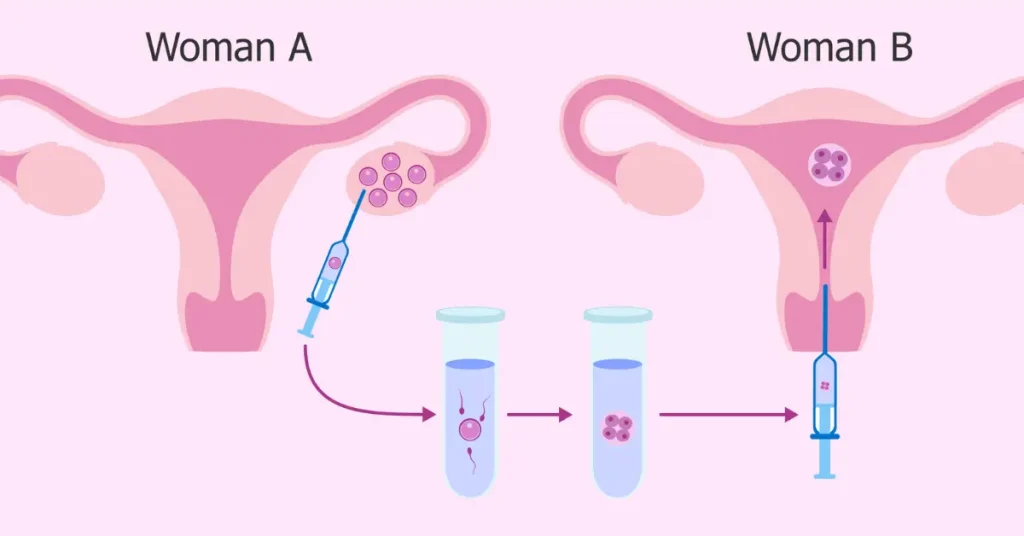Surrogacy is a process where a woman agrees to carry a baby for another person or couple. The process is often used by couples who are unable to have children themselves, or for those who want to avoid passing on a genetic disorder.
Surrogacy can be an expensive process, particularly in countries like the United Kingdom. It is important to factor in all of the associated costs, such as medical fees, legal fees, and the surrogate’s compensation. It is also important to ensure that you have the right insurance in place.
There are a number of different types of surrogacy, and each one comes with its own set of costs.
If you’re considering LGBT surrogacy in the USA, you may have many questions about the process. This guide will walk you through everything you need to know about surrogacy for LGBT couples in the USA.
This article includes:
- What is LGBT surrogacy in the USA?
- What is the process of LGBT surrogacy in the USA?
- What are the benefits of LGBT surrogacy in the USA?
- How to find a surrogate in the USA?
- What are the costs of LGBT surrogacy in the USA?
- What are the legal considerations for LGBT surrogacy in the USA?
What is LGBT surrogacy in the USA?
LGBT surrogacy is when a lesbian, gay, bisexual, or transgender person uses a surrogate to carry a child. This is a relatively new process, and there are still many questions about it. For example, what are the legal implications of a same-sex couple having a child through surrogacy? How does the process work? Who can be a surrogate?
There are many reasons why LGBT couples might choose surrogacy. For example, one partner may be unable to have children due to infertility or a health issue. Surrogacy can also be a way for LGBT couples to have a child that is biologically related to both of them.
There are a few different ways to go about LGBT surrogacy. One option is for the couple to find a surrogate who is willing to carry the child for them. The couple may also use an agency that specializes in LGBT surrogacy. In either case, there are a number of legal and financial questions that need to be addressed. For example, who will be the legal parents of the child? What happens if the surrogate decides she wants to keep the baby?
There are also a number of health risks associated with LGBT surrogacy. For example, there is a higher risk of miscarriage and of the child being born with a genetic disorder. It is important to be aware of these risks before you decide to go through with surrogacy.

What is the process of LGBT surrogacy in the USA?
The process of LGBT surrogacy in the USA is relatively new, and there are still a lot of unanswered questions about how it works. In most cases, the surrogate is the biological mother of the child, and she is in a same-sex relationship with the intended parents.
The process usually starts with the surrogate and her partner getting pregnant, and then the intended parents go through a process of legal surrogacy. This means that they are the legal parents of the child, even though the child was born to someone else.
There are a lot of benefits to this process, including the fact that the child is legally recognized by both parents from birth.
What are the benefits of LGBT surrogacy in the USA?
There are many benefits to using LGBT surrogates. First, there are more than enough LGBT individuals who want to be surrogates and who have the necessary qualifications to do so. This means that there is a large pool of potential surrogates to choose from, which can be helpful for those who have difficulty becoming pregnant.
Second, the use of LGBT surrogates can help to break down barriers and prejudices. By using an LGBT surrogate, potential parents can demonstrate their support for the LGBT community and help to reduce discrimination against LGBT individuals.
Third, using an LGBT surrogate can be an important way to build a family. For many LGBT couples and families, using an LGBT surrogate can be a way to create a child who is both genetically and socially connected to them. This can be a powerful way to build a family and create a sense of community.
All in all, there are many benefits to using LGBT surrogates. They are qualified, they can help to break down barriers, and they can help to build families.
How to find a surrogate in the USA
Finding a surrogate in the United States can be a daunting task. But with the right resources, it can be a lot easier. The following are some tips to help you find a surrogate in the USA.
- Start by contacting a surrogacy agency. There are many reputable surrogacy agencies in the United States, and they can help you find a surrogate who is a good fit for your needs.
- Ask friends and family if they know of any good surrogacy agencies or surrogates. Word of mouth is a great way to find trustworthy information.
- Use online resources to find surrogacy agencies and surrogates. There are many websites that list surrogacy agencies and/or surrogates, and you can also do a Google search for “surrogacy agencies in the USA.”
- Contact the American Society for Reproductive Medicine (ASRM) to find a list of surrogacy agencies that are accredited by the ASRM. This is a good way to ensure that you are working with a reputable agency.
- Talk to other couples who have gone through surrogacy. They can give you valuable advice and tips on how to find a surrogate in the USA.
What are the costs of LGBT surrogacy in the USA?
Surrogacy can be an expensive process, and this is especially true for LGBT couples who need to use a surrogate. In the USA, the average cost of a surrogacy arrangement is $120,000. This includes the cost of the surrogate’s fees, medical expenses, and legal fees.
There are a number of reasons why surrogacy can be so expensive.
First, the process is often complex and time-consuming. There are a lot of steps that need to be taken in order to make sure that everything goes smoothly, and this can add up to a lot of money.
Second, the USA has a very strict legal framework when it comes to surrogacy. This means that there are a lot of legal costs associated with the process. Lawyers need to be hired to make sure that all of the paperwork is in order and that the couple is protected legally.
Finally, the cost of surrogacy can be high due to the fact that the USA has a very advanced medical infrastructure. This means that the medical costs associated with surrogacy are often high.
Despite the high costs, many couples choose to undergo surrogacy in the USA. This is because the USA offers some of the best medical care in the world, and the legal framework is very favorable to couples.

What are the legal considerations for LGBT surrogacy in the USA?
The legality of LGBT surrogacy in the USA is a complex issue. There are a number of legal considerations that must be taken into account, such as state laws governing surrogacy, the rights of the parents and the child, and the impact of federal law.
There is no federal law that specifically addresses LGBT surrogacy, so the legality of the arrangement will depend on the laws of the state in which the surrogacy takes place. Some states expressly allow LGBT surrogacy, while others do not address the issue specifically, leaving it up to the courts to decide. In states that do not expressly allow LGBT surrogacy, the arrangement may be considered unlawful.
The legal rights of the parents and the child in an LGBT surrogacy arrangement can also be complex. The parents may be considered the legal parents of the child, even if they are not biologically related to him or her. However, in some states, the surrogate may also be considered a legal parent, depending on the circumstances.
The child may also have the right to inherit from both parents, even if they are not biologically related.
The impact of federal law on LGBT surrogacy arrangements is also uncertain. The US Supreme Court has not issued a ruling specifically addressing this issue, so the extent of federal protection for LGBT parents and children is not clear.
Some federal laws, such as the Family and Medical Leave Act, may apply to LGBT parents and children in a surrogacy arrangement. However, other federal laws, such as the Defense of Marriage Act, may not be applicable.
FAQs about LGBT surrogacy in the USA
What is LGBT surrogacy?
LGBT surrogacy is a type of surrogacy where both the intended parents and the surrogate are LGBT individuals or couples.
What are the benefits of LGBT surrogacy?
There are many benefits of LGBT surrogacy. For starters, it can be a great way for LGBT couples to have a child of their own. Additionally, LGBT surrogacy can be a way for single LGBT individuals to become parents.
What are the risks of LGBT surrogacy?
The risks of LGBT surrogacy vary from case to case. However, some potential risks include problems with the surrogate’s pregnancy, legal issues, and the surrogate changing her mind about the arrangement.
What are the costs of LGBT surrogacy?
The costs of LGBT surrogacy vary depending on the location and the particular arrangements made. However, generally speaking, the costs are higher than traditional surrogacy arrangements.
What are the legal requirements for LGBT surrogacy?
The legal requirements for LGBT surrogacy vary from country to country. However, in most cases, the same laws and regulations that apply to traditional surrogacy arrangements also apply to LGBT surrogacy.















